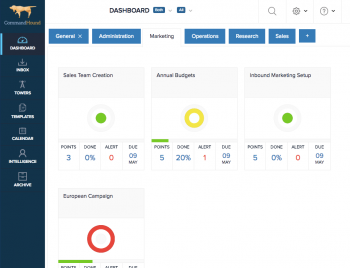Have you ever wondered how a disciplined process like Six Sigma can actually delivery near perfect output of any kind in a business? You probably think the Six Sigma system is only used by large manufacturing companies with large teams solely dedicated to quality. Not really.
Insights: Management
Have you ever wondered how to motivate your sales teams in an engaging way that not only encourages them to achieve the next sales goal but also helps them see the big picture?
You might think your company runs like a well-oiled machine. Your teams deal with problems as they come up and can always finish projects roughly on time. So, what else could you do?
Ask anyone in your office how they feel about meetings, and you are likely to get passionate responses on both sides of the aisle.
Every manager has faced the disappointment of assigning a task to a team member and finding out that the task was ignored or slipped through the cracks.
So your company has recently taken a close look at its strategy and developed a new plan for the coming year. Now, how do your move your team into execution mode?
Why are we so often caught reacting to an interminable sequence of crises that seem to reoccur more often than they should?
We have all heard the stories of startup “unicorns” — the unlikely heroes of the Silicon Valley tech boom that have reached or exceeded a $1 billion valuation.
Why is it that 61% of all technology projects fail at the point of implementation (as found in a Merkle Group survey)?
It seems like the tech industry and startups are always bragging about their ability to “disrupt” established industries.










